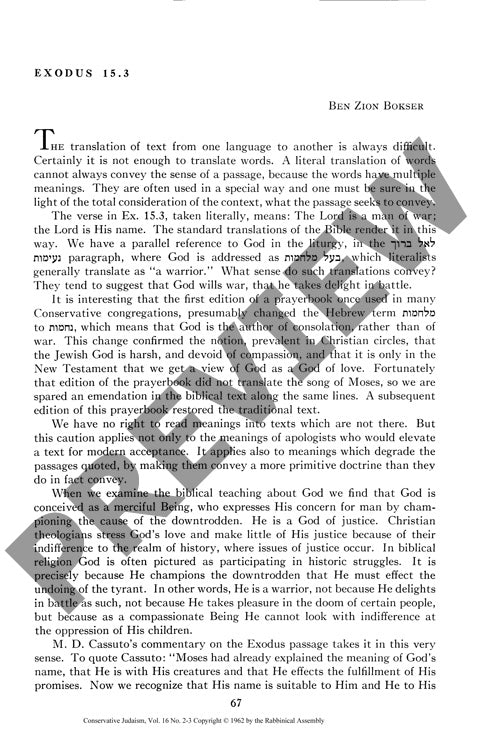Exodus
Couldn't load pickup availability
The provocative description of God as a "man of war" in Exodus 15:3 has long troubled religious scholars and translators, raising fundamental questions about divine nature and biblical interpretation. Conventional translations suggesting a deity who delights in warfare misinterpret this crucial passage's deeper theological significance. Through philological and exegetical analysis of biblical commentaries by Cassuto, Hertz, and Sforno, alongside examination of parallel liturgical texts and prayer book translations, a more nuanced understanding emerges. Rather than glorifying combat, the warrior imagery portrays God as a champion of justice and protector of the oppressed. This interpretation aligns with the divine name יהוה (YHVH), traditionally associated with God's attribute of mercy and derived from the verb "to be"—suggesting a fundamental divine concern with fostering existence and countering destructive forces. The evidence reveals that contextually sensitive translation, moving beyond literal word-for-word rendering, illuminates a theology consistent with biblical presentations of God as merciful and just, challenging superficial readings that characterize the Hebrew Bible's deity as harsh or war-loving.

More Information
-
Physical Description
-
Publication Information
Published 1962
ISBN
-
Publication Credits
Ben Bokser

